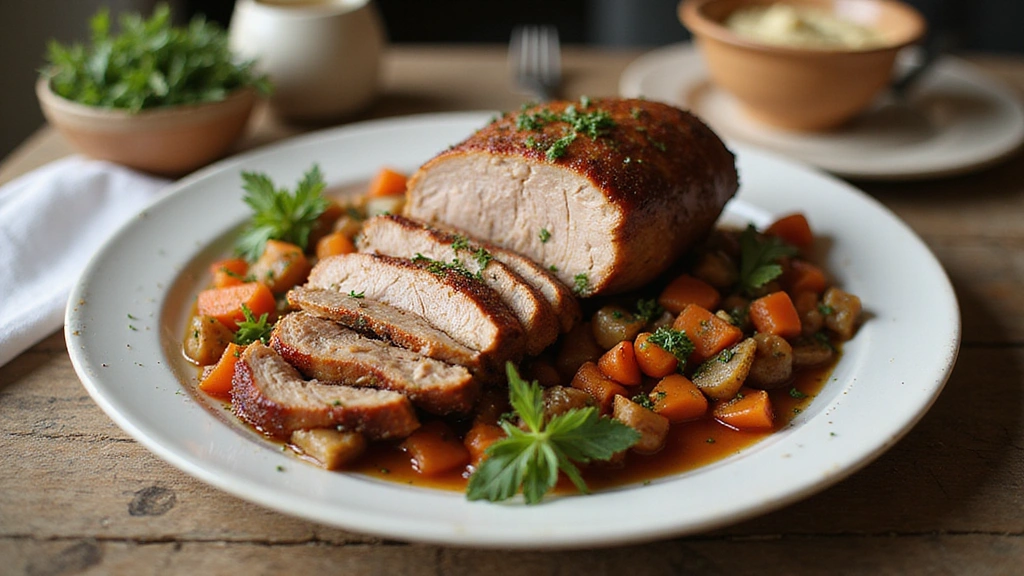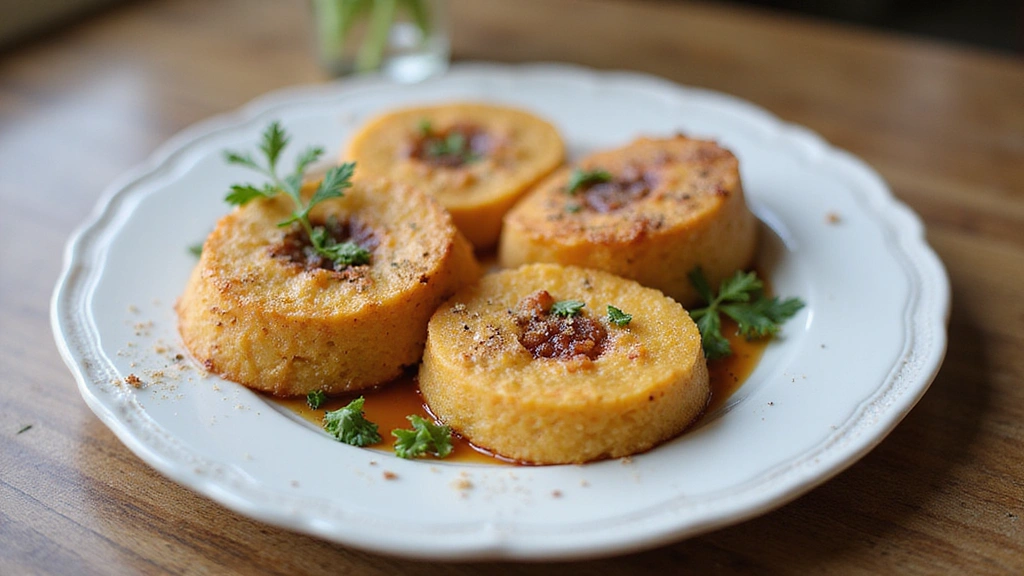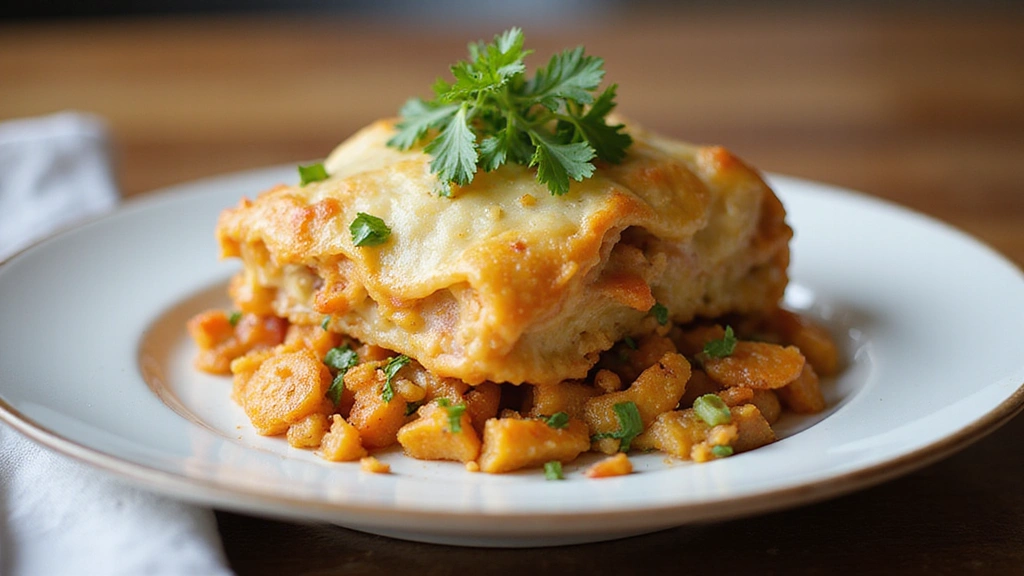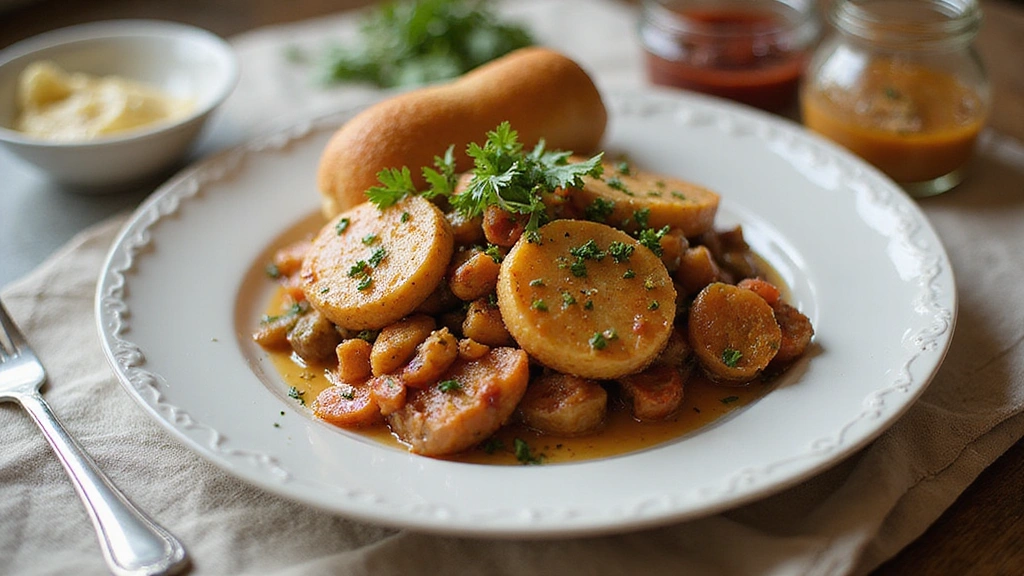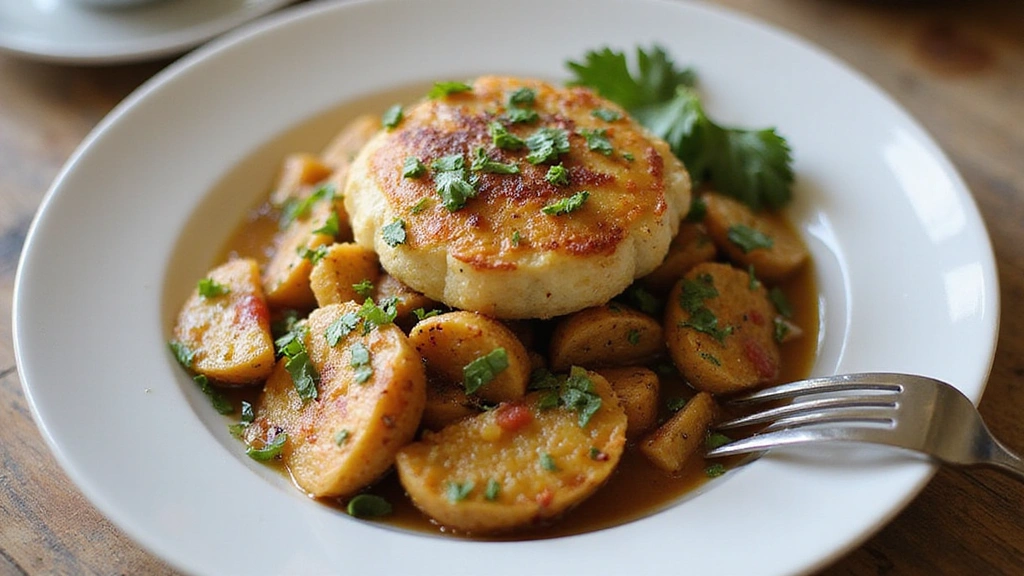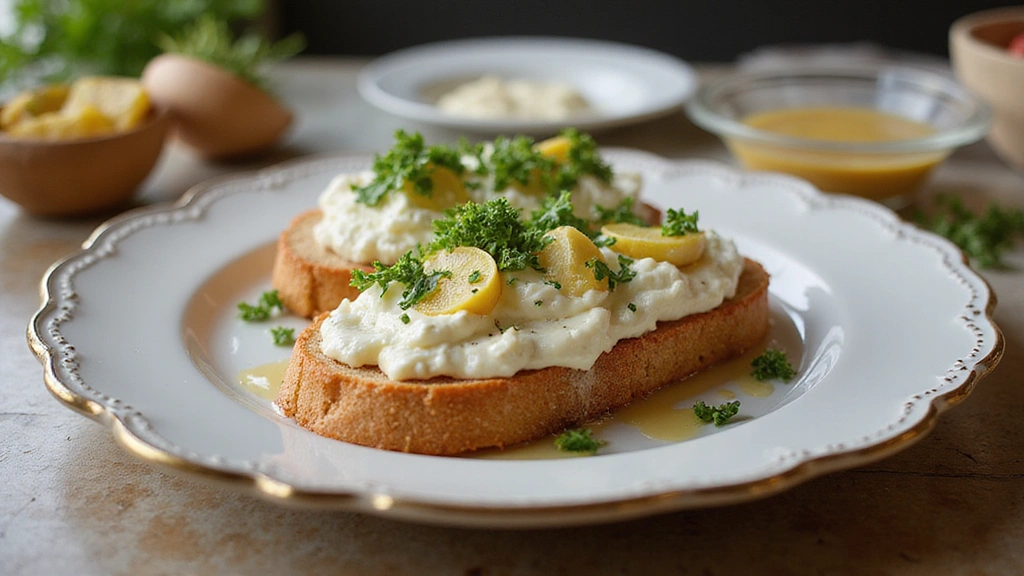
Casserole Recipes for Dinner
Ingredients
Equipment
Method
- Preparation Methods
- Steaming Vegetables: Lightly steam to preserve nutrients and color; cut evenly for uniform cooking.
- Mixing Ingredients: Gently combine with a spoon or spatula to distribute flavors without mashing.
- Layering: Start with the base, add sauce, and finish with topping for balanced texture.
- Step-by-Step Instructions
- Gather Ingredients: Assemble everything, chop vegetables, and shred chicken. Measure sour cream and soup.
- Steam Vegetables: Place broccoli and carrots in a steamer basket; steam for 5 minutes until tender but crisp. Let cool.
- Mix Sauce: In a large bowl, whisk cream of mushroom soup and sour cream until smooth and lump-free. Season with salt and pepper.
- Combine Ingredients: Add chicken, rice, and vegetables to the sauce; gently fold to coat evenly.
- Transfer to Dish: Preheat oven to 350°F (175°C). Grease the baking dish, then spread the mixture evenly.
- Add Topping: Sprinkle breadcrumbs or shredded cheese on top, pressing lightly to adhere.
- Bake: Bake for 30–35 minutes until golden and bubbling. Let rest for a few minutes.
- Serve: Enjoy hot, garnished with fresh herbs if desired. Store leftovers in an airtight container.
Notes
- Steaming vegetables: Exactly 5 minutes to avoid mushiness.
- Baking: 350°F for 30–35 minutes; check for golden top and bubbling. Avoid opening the oven frequently.
- Resting: 5–10 minutes post-bake to set layers and ease slicing.
- Choose fresh vegetables and high-quality chicken.
- Slightly under-steam vegetables to retain crispness during baking.
- Bring mixture to room temperature before baking for even cooking.
- Stir shredded cheese into the sauce for extra creaminess.
- Lightly sauté vegetables before steaming for deeper flavor.
- Prepare a day ahead and bake just before serving.
- Garnish with fresh herbs for visual appeal.
- Use a glass dish to monitor layers and heat distribution.
This classic casserole recipe brings together centuries of culinary tradition with modern techniques to create a dish that’s both comforting and elegant.
The harmonious balance of creamy, savory, and rich flavors creates a memorable dining experience that will have everyone asking for your secret.
I first discovered this recipe during my travels through the American Midwest, where local chefs have perfected it through generations of careful refinement.
Whether you’re preparing a casual family dinner or hosting a special celebration, this casserole dish delivers impressive results with straightforward preparation.
The History and Cultural Significance
• Casserole recipes trace their origins to the late 19th century, where they were originally created by innovative cooks looking to combine meat, vegetables, and starch in one dish.
• The dish evolved over decades as canned soups and pre-packaged ingredients became popular, eventually becoming the beloved version we know today.
• In American culture, this dish traditionally appears at potlucks and holiday gatherings, symbolizing comfort and togetherness.
• While many variations exist across different regions, the authentic version maintains a creamy texture and a crispy topping that sets it apart from imitations.
Recipe Overview
Nutritional Information (per serving)
Essential Equipment Guide
Baking Dish: A good baking dish is essential for even cooking and easy serving. Opt for a glass or ceramic dish for the best results, as they provide consistent heat distribution.
Sharp Knife: A sharp knife is crucial for preparing ingredients quickly and safely. Look for a high-quality stainless steel knife that can handle a variety of chopping tasks.
Large Mixing Bowl: A large mixing bowl is necessary for combining all the ingredients evenly. Choose a bowl with a non-slip base to prevent spills and accidents.
Ingredients
For the Base
| Amount | Ingredient | Notes |
|---|---|---|
| 2 cups | cooked chicken | shredded for easy mixing |
| 1 cup | cooked rice | adds body and texture |
For the Sauce
| Amount | Ingredient | Notes |
|---|---|---|
| 1 can | cream of mushroom soup | provides creamy richness |
| 1 cup | sour cream | adds tangy flavor |
Vegetables
| Amount | Ingredient | Notes |
|---|---|---|
| 2 cups | broccoli florets | steamed until tender |
| 1 cup | carrots | thinly sliced |
Seasonings
| Amount | Ingredient | Notes |
|---|---|---|
| 1 teaspoon | salt | enhances overall flavor |
| 1 teaspoon | black pepper | adds subtle heat |
Preparation Methods
Steaming Vegetables: Steaming is a gentle cooking method that helps retain nutrients and color in vegetables. Use a steamer basket and ensure the vegetables are evenly cut for consistent doneness.
Mixing Ingredients: Proper mixing ensures even distribution of flavors and textures. Use a large spoon or spatula to fold ingredients together gently, taking care not to mash them.
Layering: Layering ingredients in a baking dish is key to achieving the right texture. Start with a base layer, followed by the sauce, and finish with a topping for a balanced dish.
Step 1: Prepare Ingredients

Gather all your ingredients and equipment.
Chop the vegetables and shred the cooked chicken.
Measure out the sour cream and soup.
Ensure all components are ready for assembly.
Step 2: Steam Vegetables

Place the broccoli and carrots in a steamer basket.
Steam over boiling water for about 5 minutes.
Check if the vegetables are tender but still vibrant in color.
Remove from heat and set aside to cool slightly.
Step 3: Mix the Sauce

In a large mixing bowl, combine the cream of mushroom soup and sour cream.
Stir until smooth and well combined.
Ensure there are no lumps in the mixture.
Season with salt and pepper to taste.
Step 4: Combine Ingredients

Add the shredded chicken, cooked rice, and steamed vegetables to the sauce.
Gently fold the mixture until all ingredients are evenly coated.
Ensure the sauce is evenly distributed throughout the mixture.
Avoid breaking the vegetables while mixing.
Step 5: Layer in Baking Dish

Preheat the oven to 350°F (175°C).
Grease a baking dish lightly with oil or butter.
Spread the casserole mixture evenly in the baking dish.
Ensure the surface is smooth and level.
Step 6: Add Topping

Sprinkle a layer of breadcrumbs or shredded cheese over the casserole.
Ensure the topping covers the entire surface evenly.
Press down lightly to adhere to the mixture.
This will create a crispy, golden crust during baking.
Step 7: Bake the Casserole
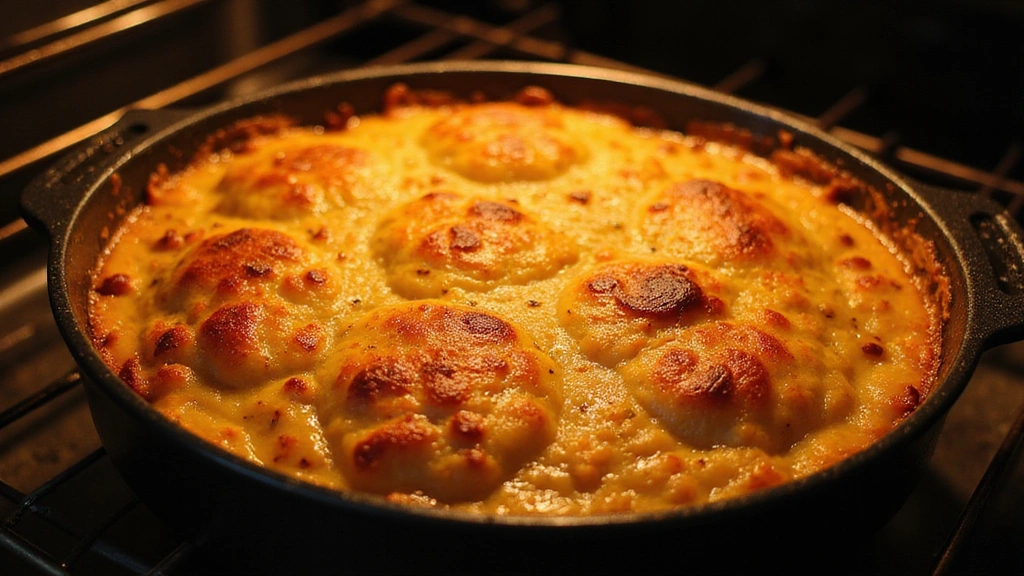
Place the baking dish in the preheated oven.
Bake for 30-35 minutes or until the top is golden and bubbly.
Check if the edges are slightly crispy.
Remove from the oven and let it cool for a few minutes before serving.
Step 8: Serve and Enjoy

Carefully portion the casserole onto plates.
Garnish with fresh herbs if desired.
Serve warm and enjoy the comforting flavors.
Store any leftovers in an airtight container in the refrigerator.
Critical Timing and Temperature Guide
Steaming Vegetables: Steam the vegetables for exactly 5 minutes, ensuring they remain vibrant and tender. Over-steaming can lead to mushy vegetables.
Baking the Casserole: Bake at 350°F for 30-35 minutes. Look for a golden, bubbly top as an indicator of doneness. Avoid opening the oven door frequently to maintain temperature consistency.
Resting Period: Allow the casserole to rest for 5-10 minutes after baking. This helps the layers set and makes serving easier. Cutting too soon can lead to a messy presentation.
Pro Tips for Casserole Recipes
• Ingredient Selection: Choose fresh, vibrant vegetables and high-quality chicken for the best flavor and texture.
• Preparation Secret: Slightly undercook the vegetables during steaming to ensure they maintain texture during baking.
• Temperature Management: Let the casserole come to room temperature before baking for even cooking.
• Texture Enhancement: Add a bit of grated cheese to the sauce for a creamier texture.
• Flavor Layering: Sautéing the vegetables briefly before steaming can add an extra layer of flavor.
• Make-Ahead Strategies: Prepare the casserole a day in advance and store it in the refrigerator. Bake just before serving.
• Restaurant-Quality Finishing Touches: Garnish with freshly chopped parsley or chives for a pop of color.
• Equipment Optimization: Use a glass baking dish for a clear view of the casserole's layers and even heat distribution.
Troubleshooting Common Issues
• Texture Too Dense: This issue can arise from over-mixing the ingredients. Mix gently to preserve texture and avoid compacting the mixture.
• Flavors Unbalanced: If the casserole lacks flavor, check your seasoning levels. Add more salt and pepper to taste before baking.
• Undercooked Center: An undercooked center is often due to uneven oven temperature. Ensure your oven is properly preheated and use an oven thermometer for accuracy.
• Too Watery: A watery casserole may result from excess moisture in the vegetables. Ensure vegetables are well-drained before mixing.
• Overly Crispy Top: If the top becomes too crispy, cover the casserole with foil during the last 10 minutes of baking.
Variations and Regional Differences
• Southern Style: This version includes a topping of crushed crackers and adds a bit of cheddar cheese for a richer flavor.
• Mexican-Inspired: Incorporates taco seasoning and uses black beans and corn for a spicy twist.
• Vegetarian: Omits the chicken and adds mushrooms and zucchini for a hearty vegetarian option.
• Italian Variation: Uses marinara sauce and adds mozzarella cheese for an Italian flair.
Food Science Behind the Recipe
• Emulsification: Understanding the emulsification of the sauce elements creates a stable, creamy texture that coats the casserole evenly.
• Maillard Reaction: The Maillard reaction during baking develops the casserole's rich, golden crust, enhancing flavor.
• Heat Transfer: Even heat transfer in the oven ensures all ingredients are cooked to the right consistency without burning the top.
Frequently Asked Questions
What's the most common mistake people make when preparing casseroles? Overcooking the vegetables, which can lead to mushiness and loss of vibrant color.
Can I freeze the casserole? Yes, you can freeze the casserole either before or after baking. Wrap tightly in plastic wrap and foil to prevent freezer burn.
How can I make the casserole gluten-free? Use gluten-free breadcrumbs or omit the topping, and ensure all other ingredients are certified gluten-free.
What can I substitute for cream of mushroom soup? You can use a homemade béchamel sauce or a dairy-free cream alternative.
How do I prevent the casserole from drying out? Ensure the baking dish is covered for most of the baking time to retain moisture.
Can I add other vegetables? Absolutely, feel free to add your favorite vegetables, adjusting cooking times as needed.
How long does the casserole last in the refrigerator? It can be stored in an airtight container for up to 3 days in the fridge.
Serving and Presentation Guide
• Traditional Presentation: Serve directly from the baking dish at the table for a family-style meal.
• Individual Servings: Portion into ramekins for a personalized touch and easier serving.
• Garnish Options: Add a sprinkle of fresh herbs and a drizzle of olive oil for an elevated presentation.
• Accompaniments: Pair with a fresh green salad and crusty bread to complete the meal.
Conclusion
Casseroles are a timeless comfort food that bring warmth and satisfaction to any meal.
With this easy-to-follow recipe, you can create a delicious dish that your family and friends will love.
Don't hesitate to try this recipe and experience the joy of homemade comfort food.

